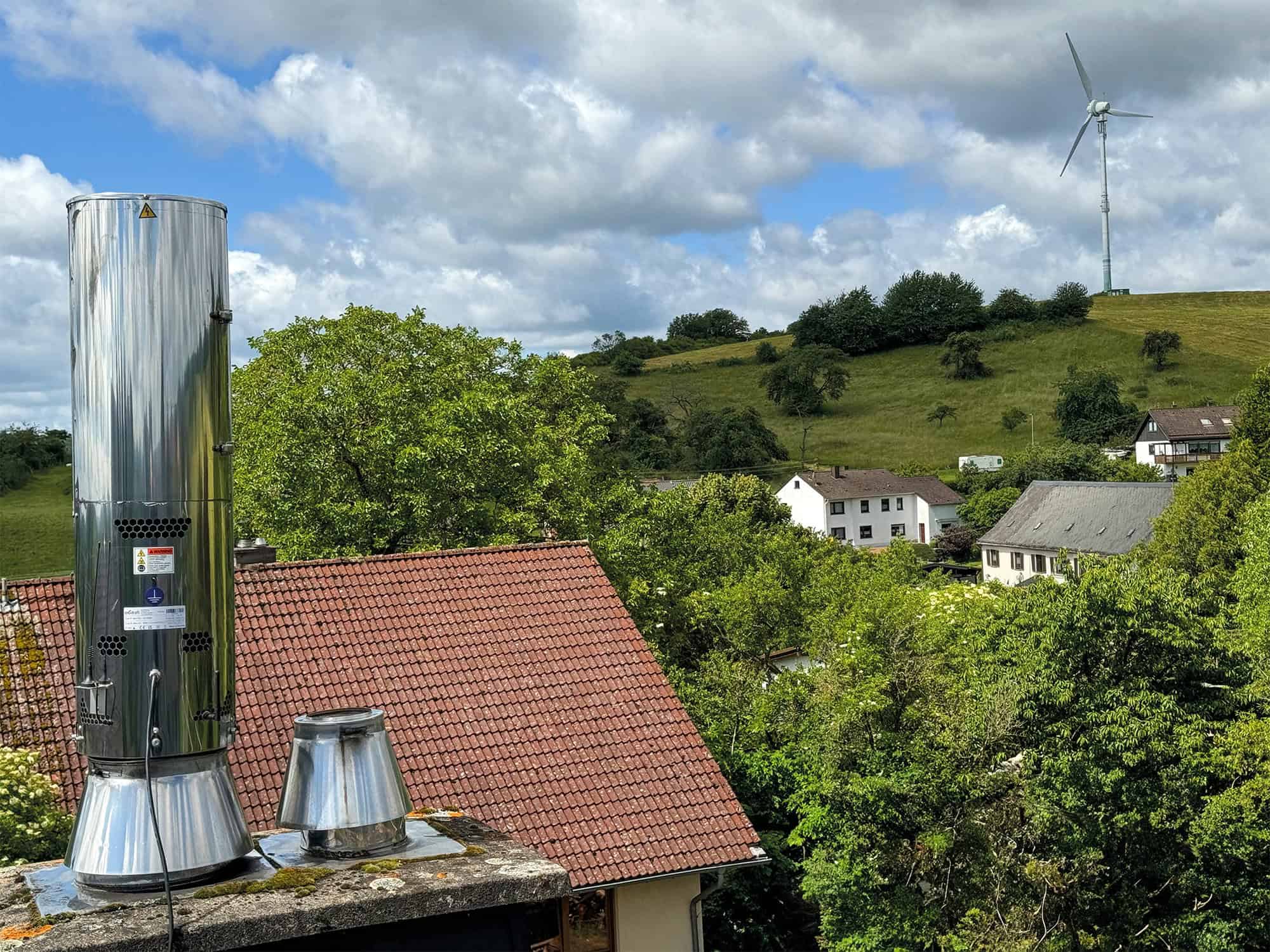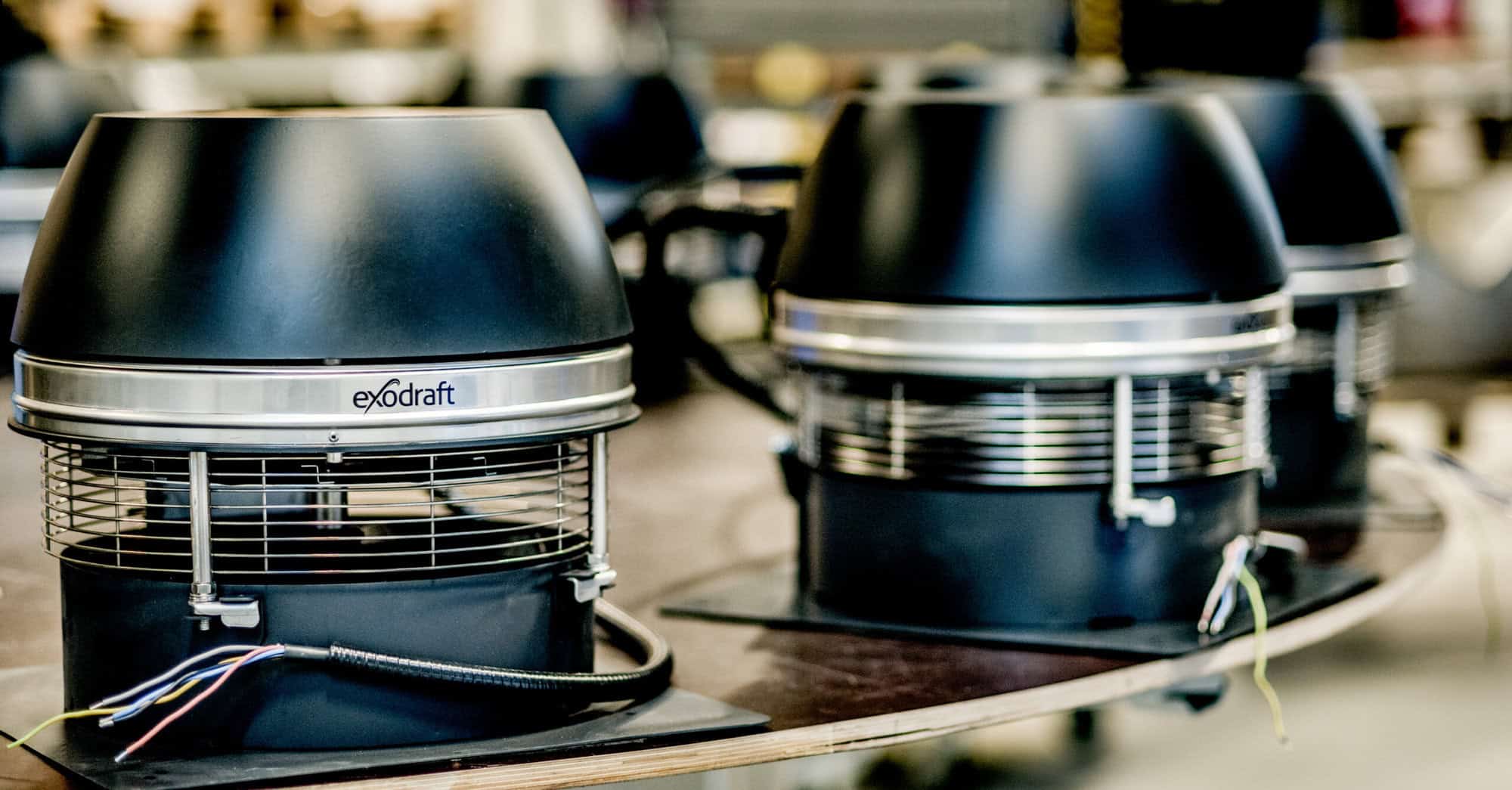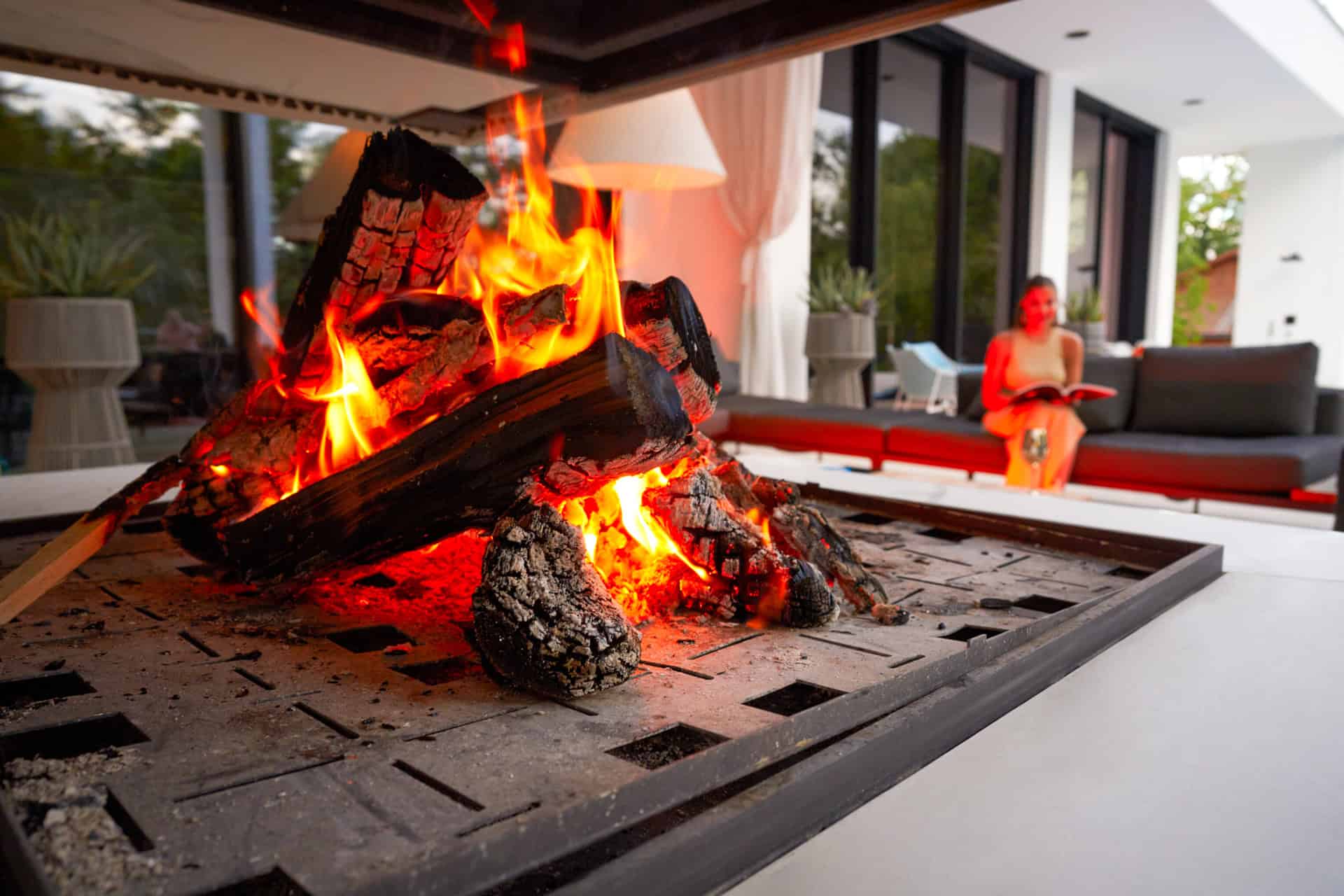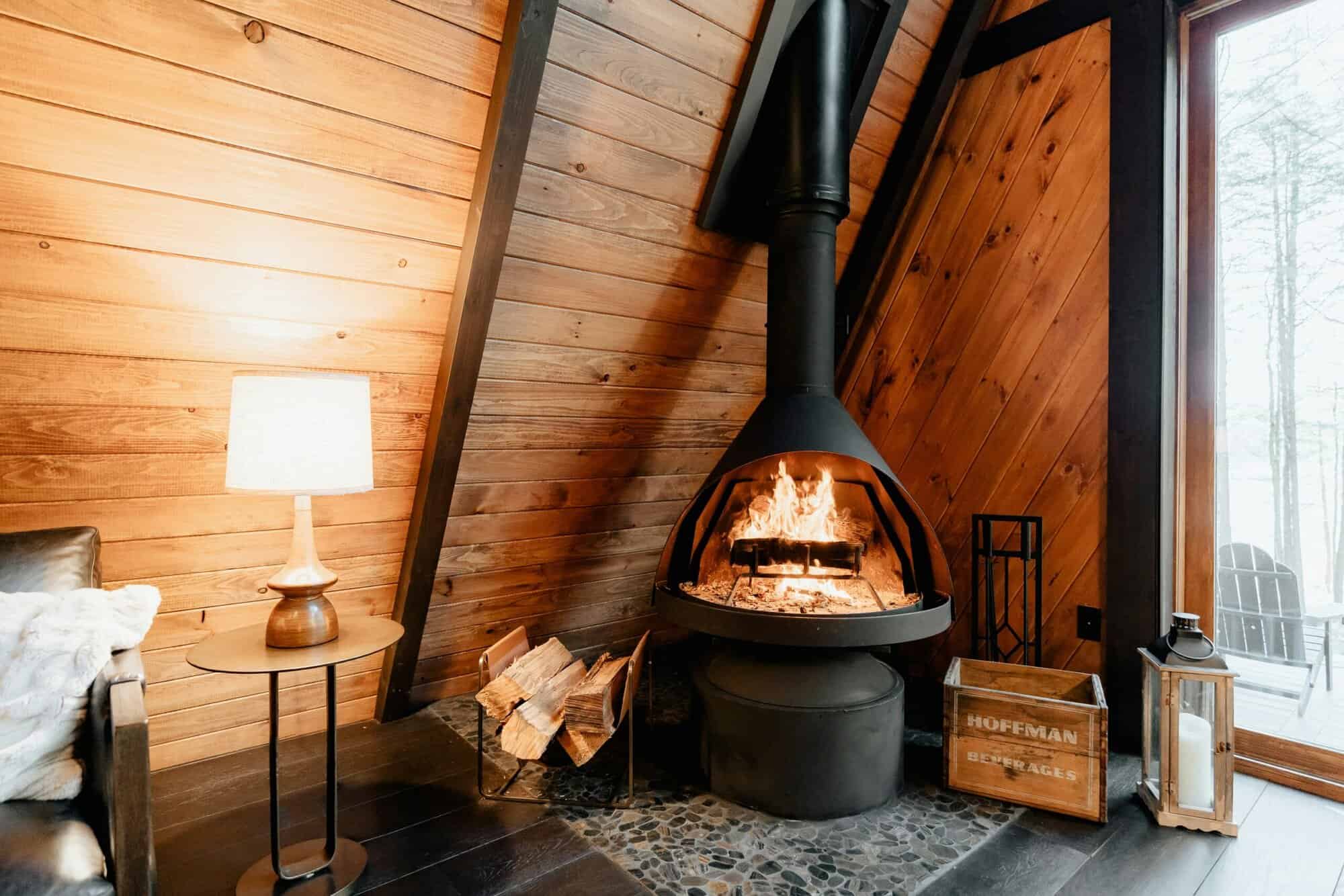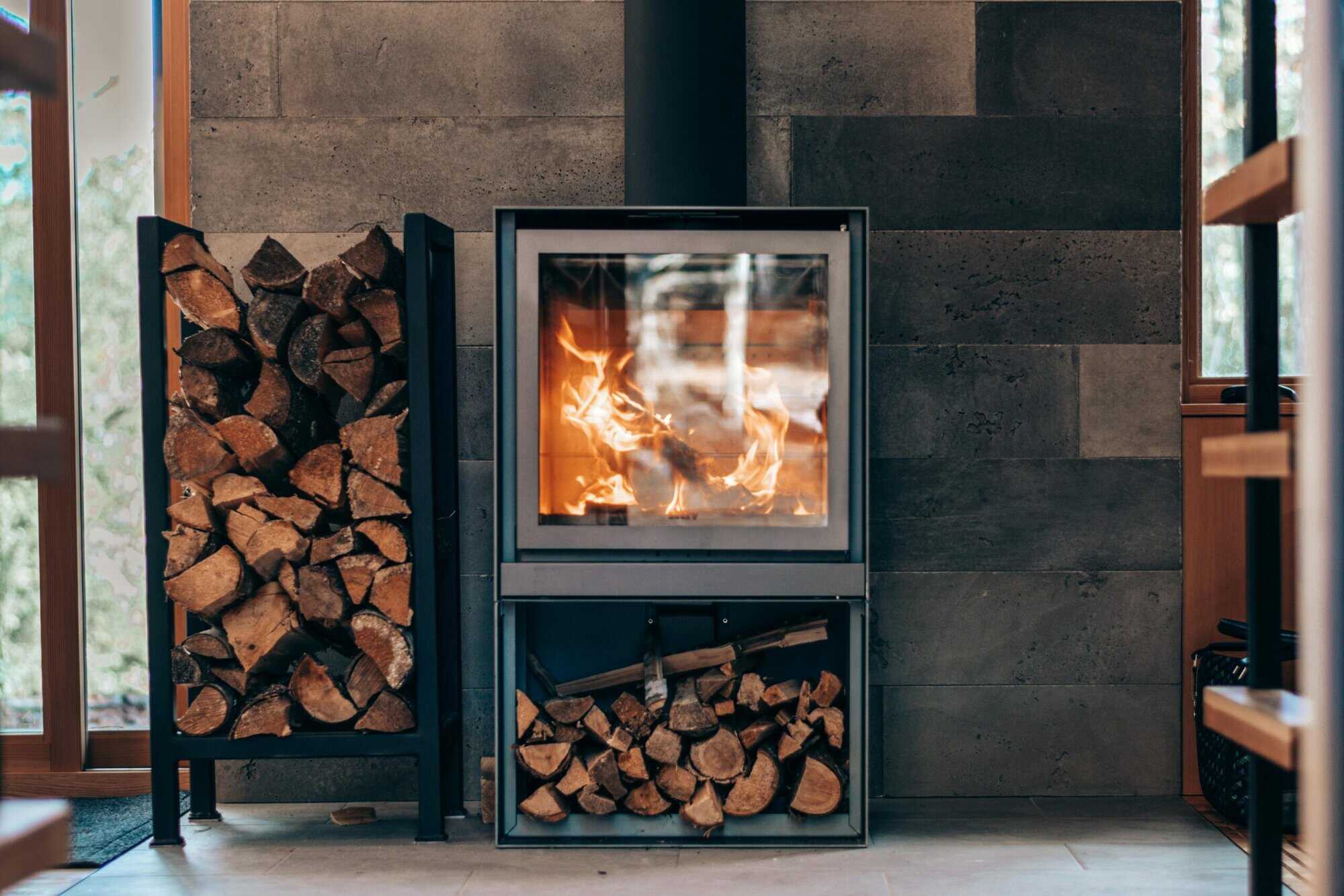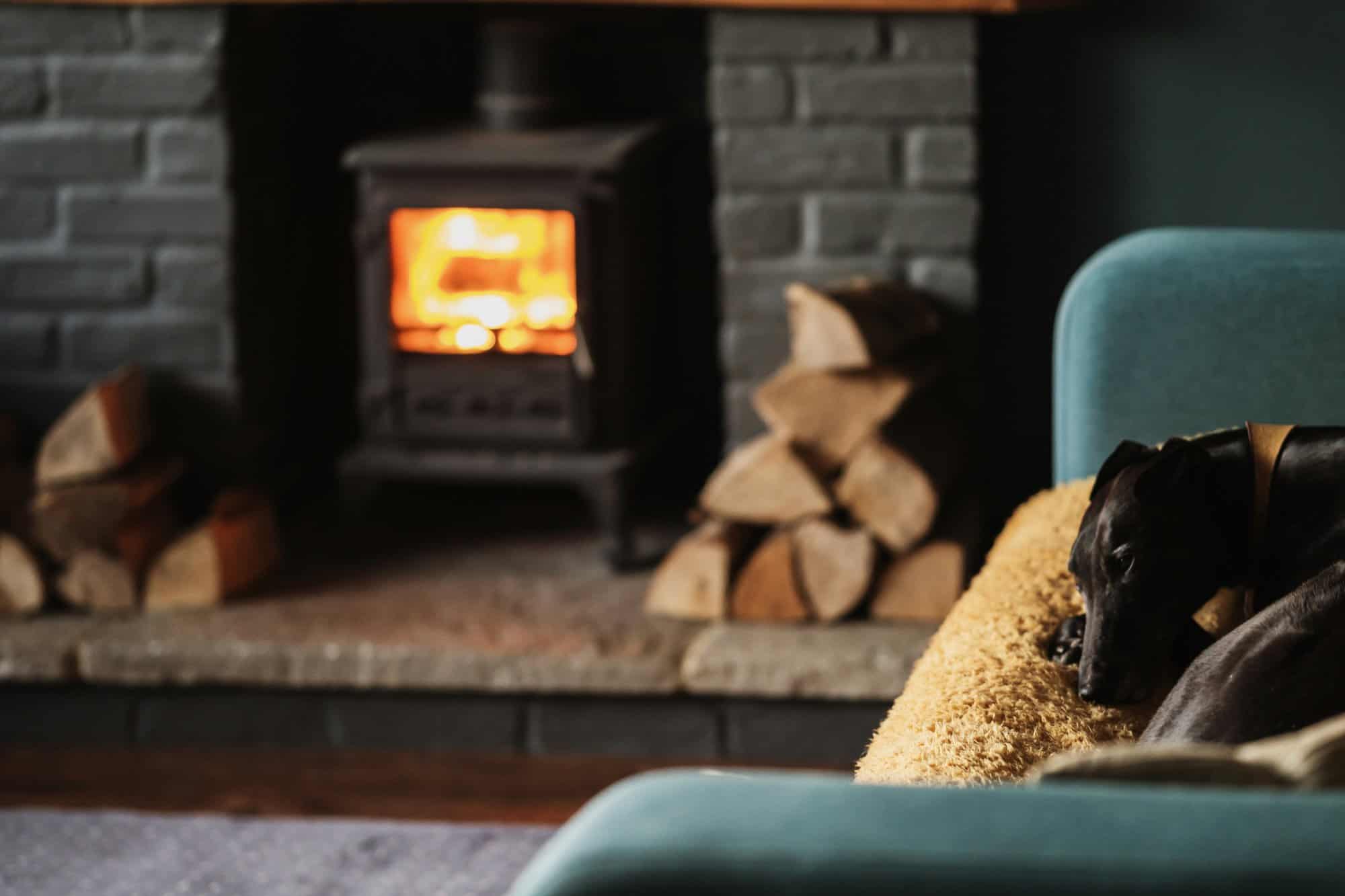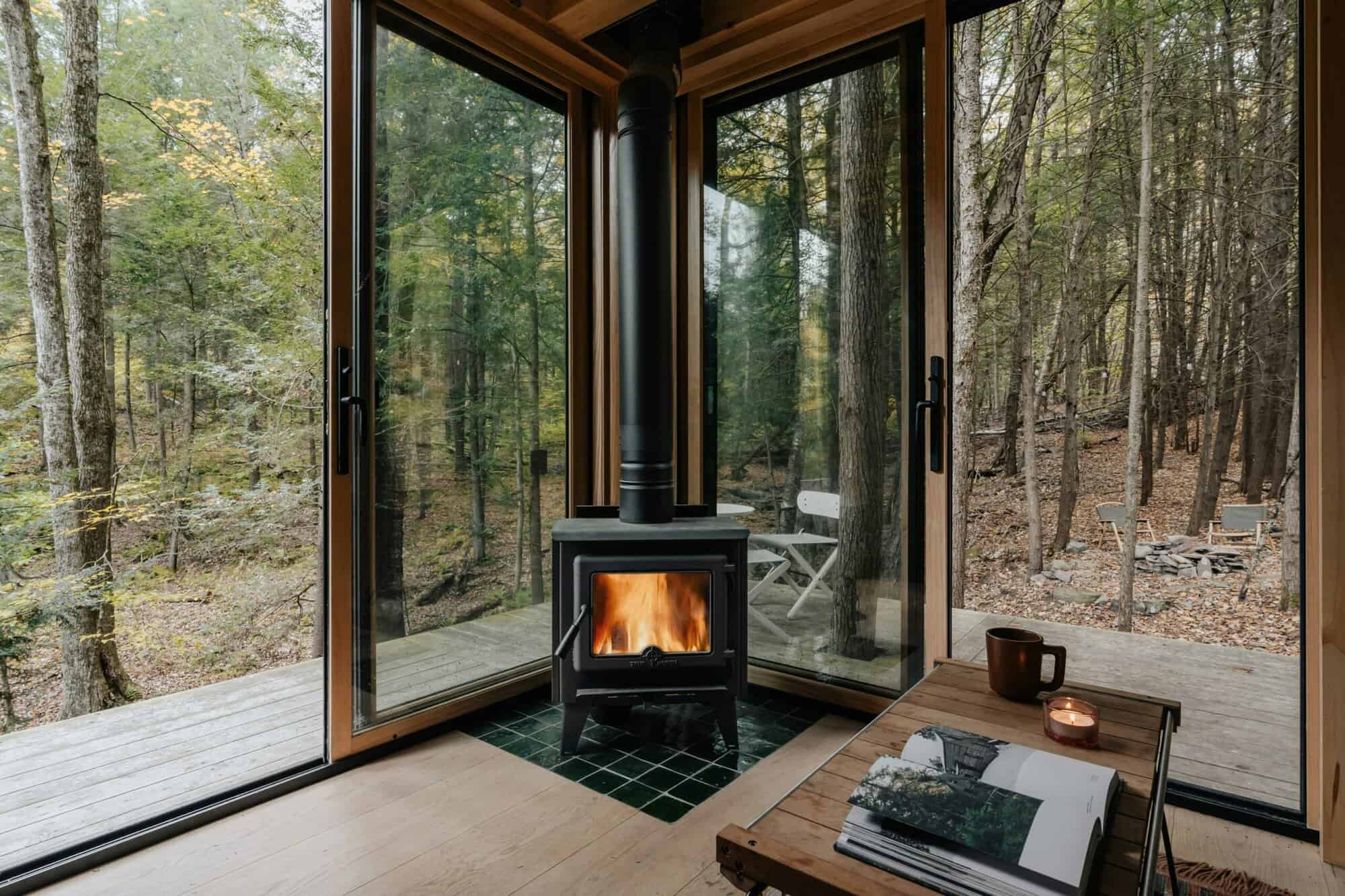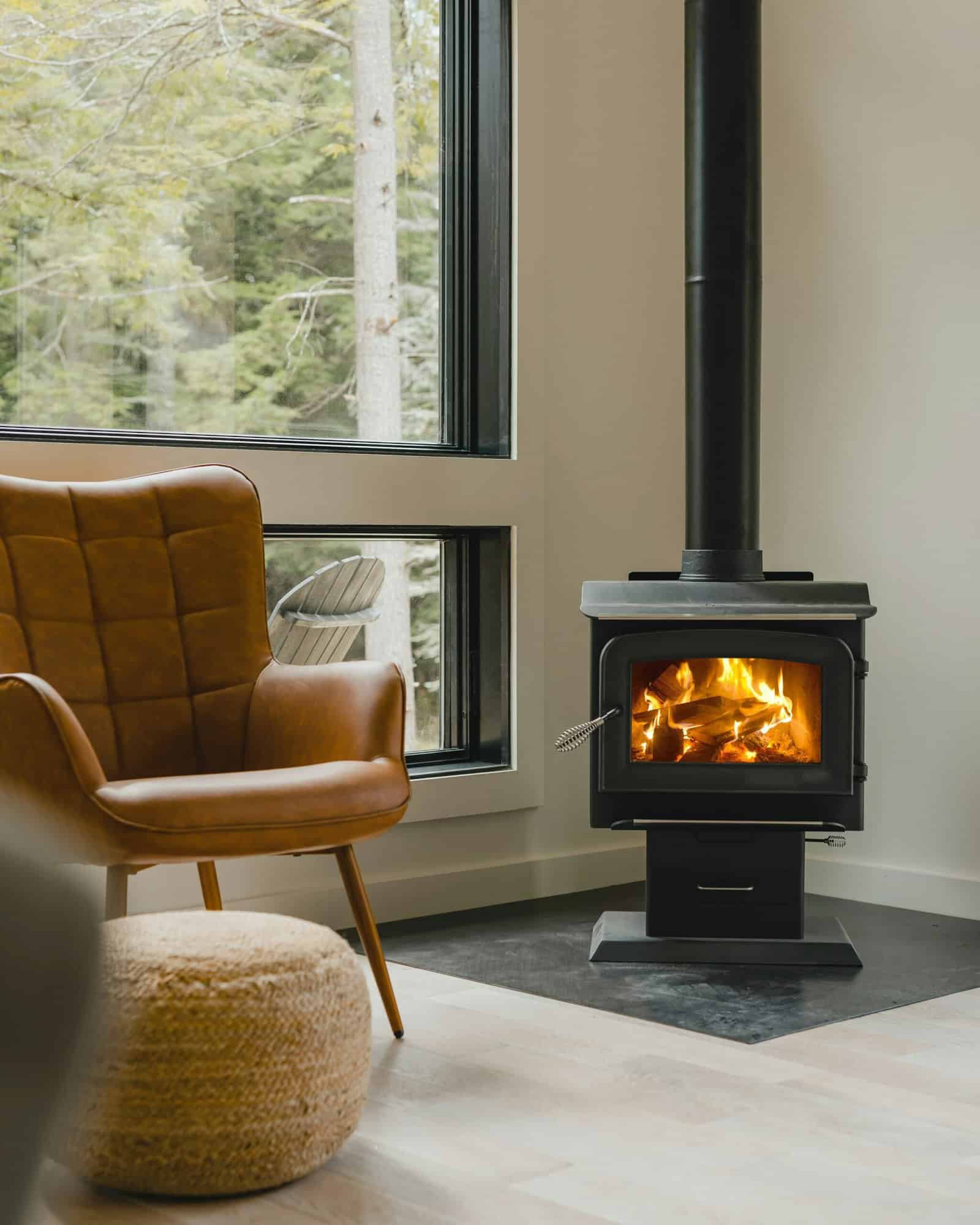Legislation and regulations
26. juni 2025 · 6 min
What Can I Legally Burn in My Wood Burning Stove?
Using the right fuel in your wood-burning stove is not just about efficiency — it’s a legal requirement. With stricter UK regulations on air quality and emissions, homeowners must ensure they burn authorised fuels to stay compliant, protect their stove, and reduce environmental impact. Burning the wrong type of fuel can lead to higher emissions,…
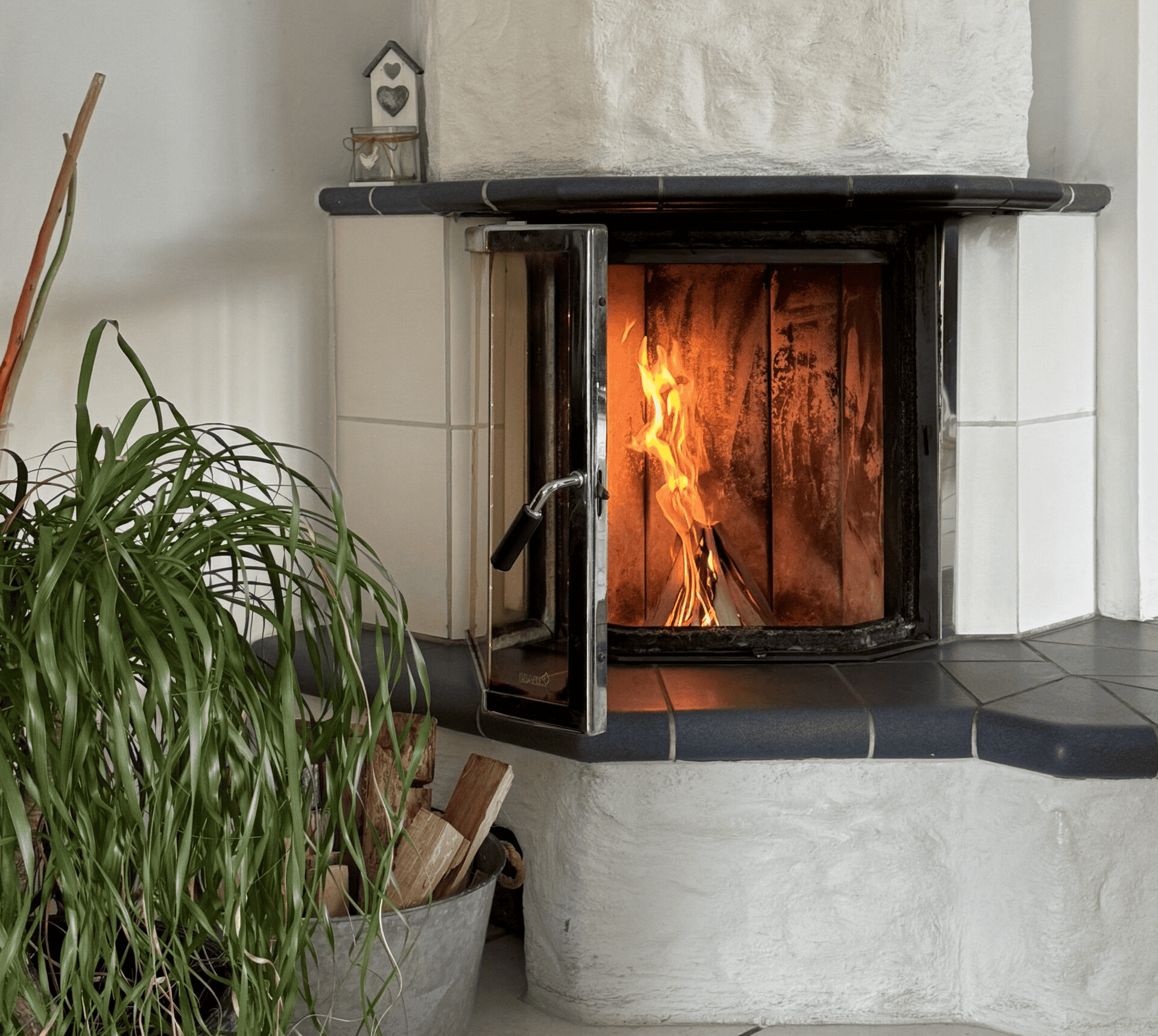
Using the right fuel in your wood-burning stove is not just about efficiency — it’s a legal requirement. With stricter UK regulations on air quality and emissions, homeowners must ensure they burn authorised fuels to stay compliant, protect their stove, and reduce environmental impact.
Burning the wrong type of fuel can lead to higher emissions, increased stove maintenance, and even fines of up to £1,000 in Smoke Control Areas. Ensuring you use the right fuel is essential for both legal compliance and the longevity of your wood burner. Additionally, pairing high-quality fuel with modern stove technology, such as a chimney fan or particle filter, can further enhance performance and reduce harmful emissions
Understanding Ecodesign 2022 and Smoke Control Areas
The UK government has introduced strict regulations on solid fuels to combat PM2.5 emissions, which are among the most harmful to human health. The two most relevant regulations for wood-burning stove owners are:
The Clean Air Act and Smoke Control Areas
In Smoke Control Areas, only authorised fuels may be burned unless you have a DEFRA-approved stove designed to limit emissions. Failure to comply can result in fines of up to £1,000. Many urban areas in the UK fall under these restrictions, so it’s essential to check local regulations before purchasing fuel.
The Ban on Wet Wood and House Coal
Since May 2021, the sale of wet wood (logs with over 20% moisture content) and traditional house coal has been banned. These fuels produce excessive smoke and contribute significantly to air pollution. Instead, only dry, seasoned, or kiln-dried wood and approved smokeless fuels are permitted for domestic use.
These regulations aim to reduce air pollution and improve overall heating efficiency in homes using solid fuel.
What Fuels Are Legal – and Which Are Banned?
To comply with UK laws and ensure clean, efficient combustion, it’s crucial to know which fuels are allowed and which are prohibited.
Legal Fuels
The best choice for your stove is dry, seasoned, or kiln-dried wood with a moisture content below 20%. Low-moisture wood burns more efficiently, produces more heat, and generates significantly less smoke and soot. Additionally, DEFRA-approved smokeless fuels are permitted, as they have been tested for low emissions and high energy output.
Banned Fuels
Wet or unseasoned wood is strictly forbidden, as its high moisture content leads to excessive smoke, poor combustion, and the buildup of creosote inside the chimney. Likewise, house coal is no longer allowed due to its high levels of soot and pollutants. Burning treated or painted wood is also illegal, as it releases toxic chemicals into the air, posing serious health and environmental risks.
By choosing the right fuel, homeowners can improve efficiency, prevent chimney damage, and reduce their environmental footprint.

How Does Fuel Quality Impact Stove Efficiency and Emissions?
The quality of the fuel you burn has a direct impact on your stove’s performance, emissions, and maintenance requirements.
Burning dry, high-quality wood ensures a hotter, cleaner burn, maximising heat output while minimising smoke production. Wet wood, on the other hand, produces excessive smoke, tar, and creosote, which not only lowers efficiency but also increases the risk of chimney fires.
Additionally, high-quality fuel helps reduce harmful emissions, making it easier to comply with UK air quality laws. Using poor-quality fuel, such as wet or treated wood, increases PM2.5 pollution, which is heavily regulated due to its impact on respiratory health.
By choosing the right fuel, homeowners can reduce fuel costs, maintenance needs, and environmental impact, all while ensuring a legal and efficient wood-burning experience.
How to Optimise Your Wood Stove with Better Fuel and Technology?
While using the right fuel is crucial, enhancing your stove’s performance with modern technology can make a significant difference. Two of the most effective solutions are chimney fans and particle filters, which help improve combustion and reduce emissions.
Improve Combustion with a Chimney Fan
A chimney fan, such as those from Exodraft, ensures optimal draught, which is critical for maintaining efficient combustion. A stable draught allows wood to burn more completely, reducing the amount of unburned fuel that turns into smoke. Additionally, a chimney fan:
- Prevents smoke backdraft and ensures better smoke dispersion.
- Improves airflow, allowing more oxygen into the combustion chamber.
- Reduces soot buildup, leading to lower maintenance needs and a cleaner chimney.
By stabilising the airflow inside the chimney, a chimney fan not only improves efficiency but also reduces emissions, helping homeowners stay compliant with air quality laws.
Protect Your Health with a Particle Filter
One of the biggest concerns with wood-burning stoves is fine and ultrafine particulate pollution. Most particles released from burning wood are smaller than 0.1 μm, making them 1,000 times thinner than a human hair. Because the human throat can only filter particles larger than 2.5 μm, these microscopic pollutants travel deep into the lungs and bloodstream, increasing the risk of:
- Asthma and other respiratory conditions
- Lung inflammation and long-term diseases
- Cardiovascular problems
Installing an Exodraft ESP-10 particle filter helps capture and neutralise up to 95% of fine and ultrafine particles, significantly improving air quality indoors and outdoors. By using a self-cleaning function, the ESP-10 ensures long-term efficiency without requiring constant maintenance.
A combination of high-quality fuel, a chimney fan, and a particle filter allows wood burner owners to enjoy efficient heating while reducing both environmental and health risks.
Choosing the Right Fuel for a Legal and Efficient Wood Burner
To ensure compliance, efficiency, and health protection, wood burner owners should:
- Burn only legal fuels, such as seasoned or kiln-dried wood with moisture under 20%.
- Avoid banned fuels, including wet wood, house coal, and treated wood.
- Improve combustion with a chimney fan, ensuring better airflow and higher efficiency.
- Protect their health by installing an Exodraft ESP-10 particle filter, which significantly reduces fine and ultrafine particles.
By combining the right fuel with modern stove technology, homeowners can enjoy their wood burner safely, legally, and efficiently, while contributing to cleaner air and better public health.

exodraft

